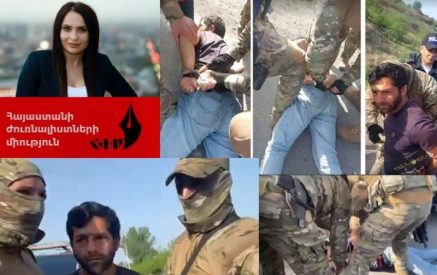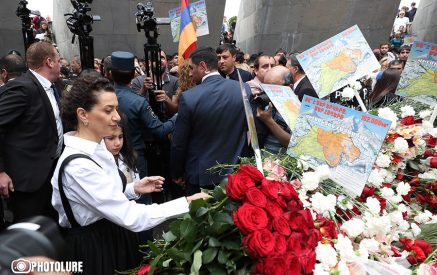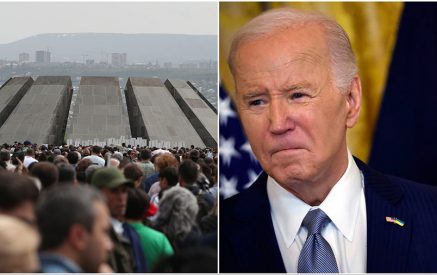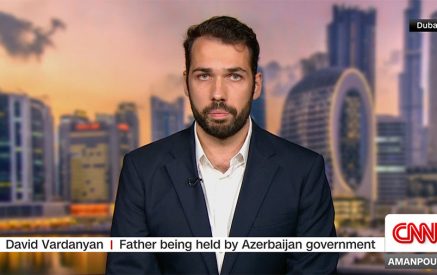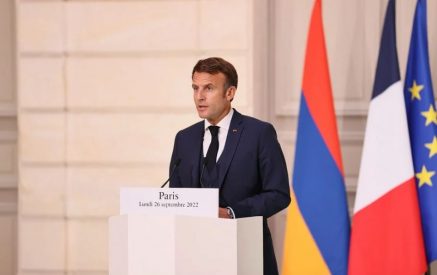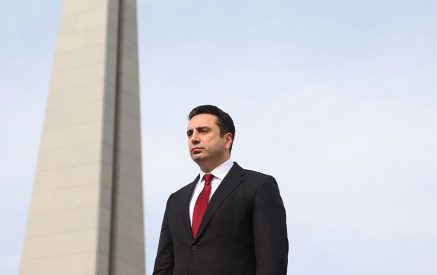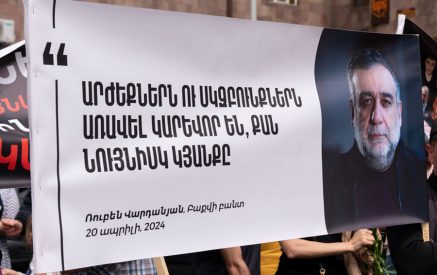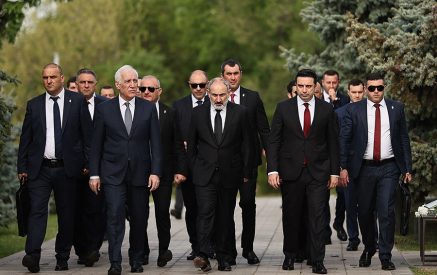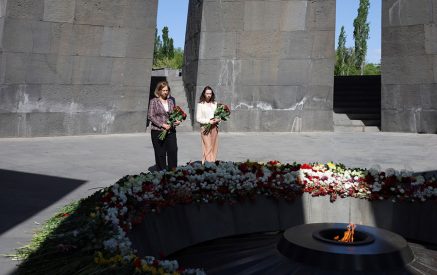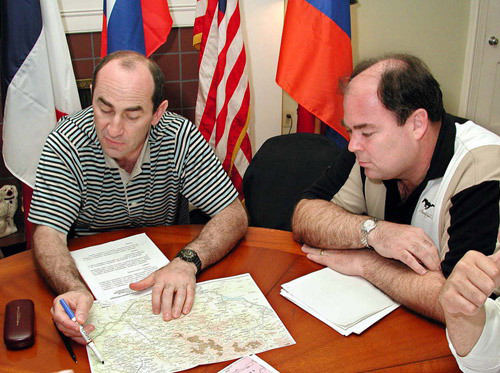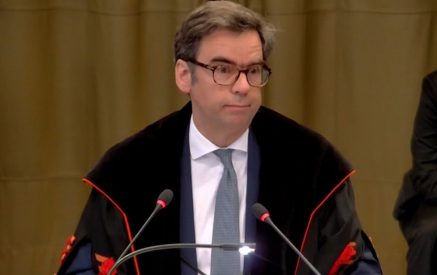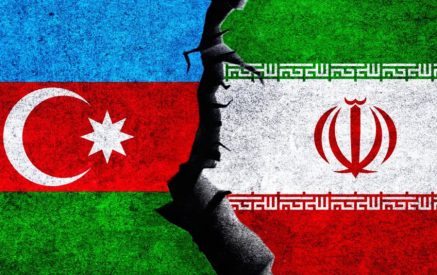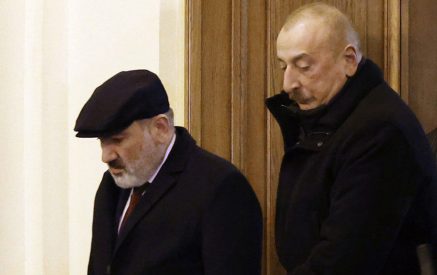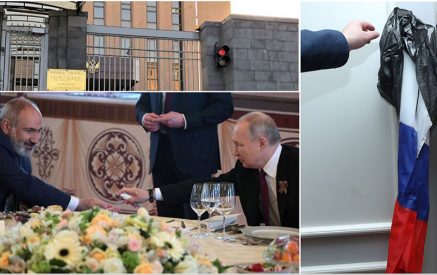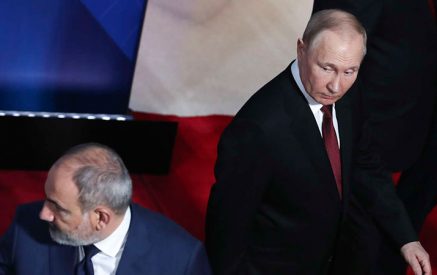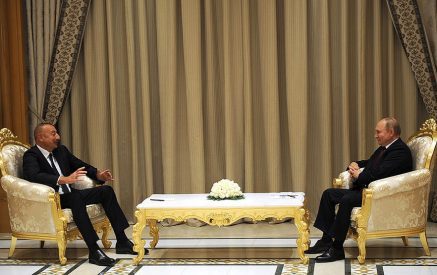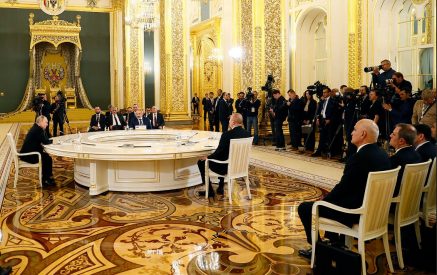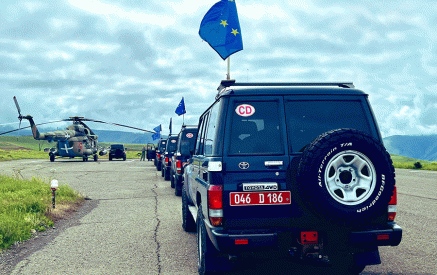All claims must be introduced to negotiators
The Armenian side has come out with honor from the Karabakh war unleashed by Azerbaijan, affected by irreversible losses and suffering. Nagorno-Karabakh is liberated, and a reliable safety zone was created around it.
Azerbaijan has persistently and long time opposed the establishment of the cease-fire in May for the simple reason that it clearly understands that in doing this it “validates” the territorial losses. It was hard for the authorities of Azerbaijan that has defeated its own unleashed war and has lost territories to agree on the ceasefire war. It was a registration of defeat, but in honor of the then authorities of Armenia, and they succeeded to impose cease-fire on Baku, and the Armenian side registered its victories in the front in the diplomatic platform. Nagorno-Karabakh was recognized a party in conflict, and in Nagorno-Karabakh settlement, Armenia, in fact, imposed on Azerbaijan to sit at the negotiation table with Karabakh people as peer-to-peer.
The 20th anniversary of the ceasefire established in 1994, May 12 in the Karabakh conflict zone was marked by the called and statements addressed to the parties towards the regulation of the conflict, which was not unexpected. With regard to conveying a new impetus to the negotiation process appeared in the long lasting deadlock, the twentieth anniversary of the cease-fire is high opportunity. Something else is surprising… The Karabakh conflict regulation topic has long become an opportunity for various manipulations by unsubstantiated facts.
Read also
When there are charges voiced why the OSCE Minsk Group cannot resolve even the issue of negotiating with Nagorno-Karabakh authorities, people raising this issue do not even try to think back a few years and recall that in 1998, Robert Kocharyan, had moved the Karabakh topic out of the negotiation process reasoning that he also represents the interests of Karabakh. Since the day when the OSCE Minsk Group American co-chair, Ambassador James Warlick delivered a speech entitled “Nagorno-Karabakh. Keys to a Settlement” at the “Carnegie” fund in the speech, such passions were flared as if they were first hearing about Armenia’s participation in the negotiation process and the suggestions as a base of negotiations.
And every such opportunity serves the purpose of the moment. This time, the American co-chair appeared in the focus of the criticism for the fact that still a few years ago he voiced his comments on the Madrid principles revealed by the Presidents of the OSCE Minsk Group co-chairing countries. He explained how he views the application of these principles.
In 2009, July 10, at the summit in L’Aquila, three leaders of the G8, the presidents of the United States, France and Russia, Barack Obama, Nicolas Sarkozy and Dmitry Medvedev, made a statement, which urged the leaders of Armenia and Azerbaijan to settle the Nagorno-Karabakh lasting conflict.
They were emphasizing that the basic principles reflect a reasonable concession based on the use of force, territorial integrity, equality and self-determination of the people based on the principles of the Helsinki Final Act, and stated that the basic principles are as follows: return of territories surrounding Nagorno-Karabakh to Azerbaijani control, an interim status to Nagorno-Karabakh, which will provide guarantees for security and self-governance, a corridor connecting Armenia to Karabakh, further decision on final status of Nagorno-Karabakh through legally binding expression of will, the right of internally displaced persons and refugees to return to their former places of residence, and international security guarantees that will include peacekeeping actions.
In fact, it should be reminded that the Madrid principles have emerged earlier, during the times of Robert Kocharyan. “We are instructing our mediators to pass the amended version of the peace making program submitted in Madrid in 2007 to the presidents of Armenia and Azerbaijan,” said Obama, Sarkozy, and Medvedev, respectively, in 2009, July 10. Where was the ambassador Warlick when the presidents of the U.S., Russia, and France revealed the aforementioned principles of settlement?… He then was not the OSCE Minsk Group ch-chair.
Yes, probably, today, the official Washington found it appropriate that the ambassador representing its country should give importance to the twentieth anniversary of the cease-fire, and send messaged to the parties. But, immediately we begin searching and classifying the “traitors” and “patriots” on the Nagorno-Karabakh issue. The the “savior” appears, in the face of Russia, in the event that anyone more or less familiar with the history of the NK settlement knows that the position of the official Moscow does not differ from Washington’s and Paris’s position, and this was proved by the statements of all former OSCE Minsk Group Russian co-chairs.
The American co-chair Warlick’s speech delivered a few days ago was not worse than the statement made by the Russian Foreign Minister Sergey Lavrov a year ago. In May last year, one of the key topics of negotiations between Russian and Azerbaijani Foreign Ministers, Sergei Lavrov and Elmar Mammadyarov, respectively, was the Karabakh problem. In the press conference following their meeting, Lavrov literally said the following, “Status quo is certainly unacceptable for everybody. Primarily for Azerbaijan, Armenia and those living in Nagorny Karabakh – I am deeply convinced in this. Status quo means not only that the issue of return of territories of Azerbaijan is unsolved, but also economic blockage of Armenia…”
Both, the official Yerevan and Baku recently responded to the OSCE Minsk Group American co-chair Warlick’s speech, expressing their willingness to continue negotiations in the framework of the OSCE Minsk Group, of course, based on the recommendations available on the table of negotiations.
Conducting negotiations is better than missing them. Perhaps, maintaining the status quo is a suitable option to avoid the undesirable solution of the conflict. But, in this case, it should be also clearly stated that it would be more logical for all “patriots” to refer their demands and calls to the once and today’s negotiators, i.e. the government, which for years has gone, negotiated, agreed and worked on presented proposals. And those negotiating before 2008, who today are voicing estimates, let them be kind and present the topics of negotiations of their times, for instances, the Key West principles, to the public.
EMMA GABRIELYAN

